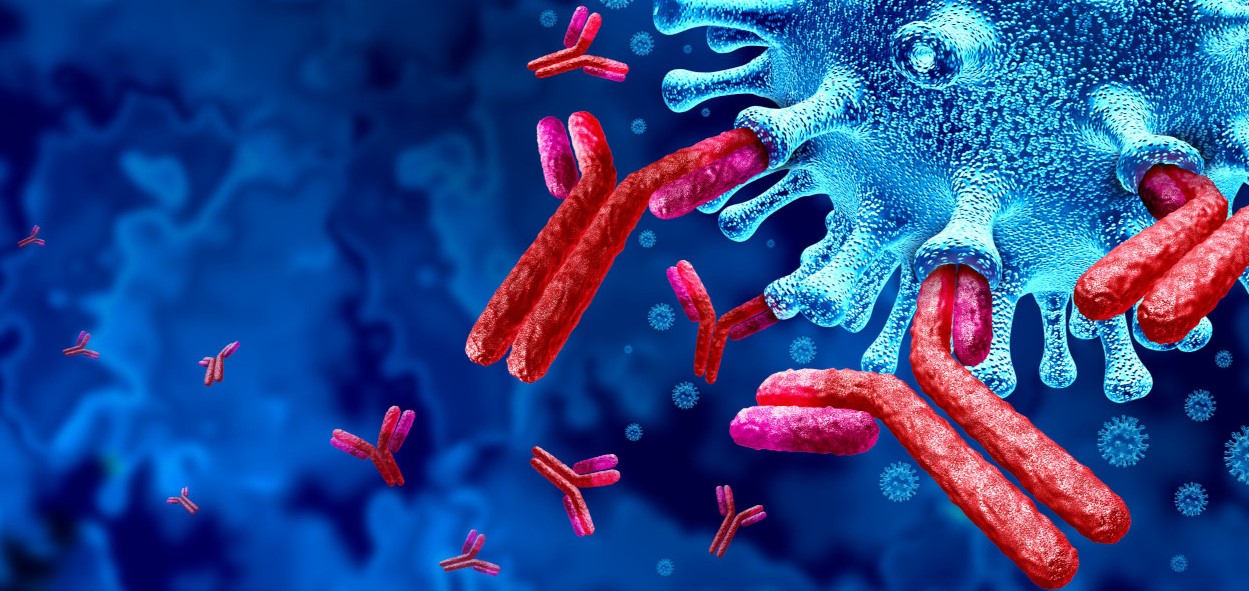
Immunoglobulins, also known as antibodies, play a crucial role in our immune system. These fascinating molecules are secreted by plasma cells and are responsible for fighting off harmful pathogens such as bacteria, viruses, and toxins. Immunoglobulins are incredibly diverse, with each type having its unique structure and function.
In this article, we will uncover 13 captivating facts about immunoglobulins that will deepen your understanding of their importance in maintaining our immune health. From their role in neutralizing invaders to their ability to provide long-lasting immunity, immunoglobulins are truly remarkable entities. So, let’s dive into the world of immunoglobulins and explore why they are at the forefront of our defense against diseases.
Key Takeaways:
- Immunoglobulins, also known as antibodies, are diverse proteins that act as the body’s defense system, targeting and neutralizing foreign invaders like bacteria and viruses to keep us healthy.
- These remarkable Y-shaped proteins have memory and can be produced synthetically in the lab, playing crucial roles in allergies, autoimmune diseases, and even diagnostic testing for infections and disorders.
Immunoglobulins come in different types
There are five main types of immunoglobulins: IgA, IgD, IgE, IgG, and IgM. Each type has a unique structure and function within the immune response.
They act as the body’s defense system
Immunoglobulins bind to foreign invaders, such as bacteria or viruses, to target them for destruction by other immune cells or to prevent them from causing harm.
Immunoglobulins can pass from mother to child
During pregnancy, IgG antibodies can cross the placenta, providing passive immunity to the unborn child and protecting them against certain diseases.
They are diverse and specific
Immunoglobulins have a remarkable ability to recognize and bind to specific targets known as antigens. This specificity allows them to effectively target and neutralize a wide range of pathogens.
Immunoglobulins have a Y-shaped structure
The basic structure of an immunoglobulin resembles a Y, with two heavy chains and two light chains. This unique shape enables them to bind to antigens with high precision.
Immunoglobulins can undergo genetic recombination
During B cell development, genes responsible for creating different types of immunoglobulins can recombine, resulting in an incredibly diverse pool of antibodies.
Immunoglobulins play a role in allergies
IgE antibodies are specifically involved in allergic reactions. They bind to allergens and trigger the release of histamines, which can lead to symptoms like sneezing, itching, and hives.
They have memory
Immunoglobulins provide long-term protection through memory B cells. These cells “remember” previous encounters with antigens, allowing for a faster and more robust immune response upon reinfection.
Immunoglobulins can be produced synthetically
Scientists can produce monoclonal antibodies in the lab, which are identical copies of a single type of antibody. These synthetic antibodies have various medical applications, such as treating cancer and autoimmune diseases.
Immunoglobulins are involved in autoimmune diseases
In certain autoimmune diseases, the immune system mistakenly targets and attacks the body’s own cells. This can result in the production of autoantibodies, which are immunoglobulins that target self-antigens.
They have half-lives
The lifespan of immunoglobulins varies depending on the type. IgG antibodies, for example, have a half-life of about 21 days, while IgE antibodies have a much shorter half-life of around 2 days.
Immunoglobulins can be used for diagnostic purposes
Testing for specific immunoglobulins in the blood can help healthcare professionals diagnose certain infections, allergies, and autoimmune disorders.
Immunoglobulins are produced in response to vaccination
Vaccinations stimulate the production of specific immunoglobulins, which provide protection against the targeted infectious agents.
Immunoglobulins are remarkable proteins that are essential for maintaining a healthy functioning immune system. Their diverse roles and fascinating properties make them a captivating subject of study and research.
Conclusion
In conclusion, immunoglobulins play a crucial role in the immune system, protecting our bodies from harmful pathogens. Understanding the fascinating facts about immunoglobulins enhances our knowledge of how our immune system functions and helps in the development of targeted therapies and vaccines. From their diverse structure to their different classes and functions, immunoglobulins are a complex and powerful defense mechanism that defends our bodies against infections and diseases.By providing specific targeting abilities and diverse response mechanisms, immunoglobulins ensure the effectiveness of our immune response. They enable our body to remember and fight off previously encountered pathogens, contributing to long-term immunity. Moreover, the discovery of monoclonal antibodies has revolutionized the field of medicine, paving the way for customized and targeted treatment approaches.Continued research and exploration into immunoglobulins will undoubtedly uncover even more captivating facts, expanding our understanding and potentially leading to breakthroughs in immunotherapy and disease prevention. The intricate world of immunoglobulins is a testament to the remarkable complexity and ingenuity of the human immune system.
FAQs
Q: What are immunoglobulins?
A: Immunoglobulins, also known as antibodies, are proteins produced by the immune system to identify and neutralize foreign substances such as bacteria, viruses, and toxins.
Q: How many classes of immunoglobulins are there?
A: There are five main classes of immunoglobulins: IgG, IgA, IgM, IgD, and IgE. Each class has unique characteristics and functions in the immune response.
Q: How are immunoglobulins structured?
A: Immunoglobulins have a Y-shaped structure composed of four polypeptide chains: two heavy chains and two light chains. These chains are connected by disulfide bonds.
Q: What is the role of immunoglobulins in the immune response?
A: Immunoglobulins identify and bind to specific antigens on pathogens, marking them for destruction by the immune system. They also activate other components of the immune system to eliminate the invaders.
Q: How are immunoglobulins used in medical treatments?
A: Immunoglobulins are used in various medical treatments, including intravenous immunoglobulin (IVIG) therapy for immune deficiencies and autoimmune diseases, as well as monoclonal antibody therapies for cancer and other conditions.
Q: Can immunoglobulins be transferred from one person to another?
A: Yes, immunoglobulins can be transferred from one person to another through blood transfusions, plasma donations, or the transfer of colostrum from a mother to her newborn.
Q: Can immunoglobulin levels be tested?
A: Yes, immunoglobulin levels can be tested through blood tests. The results help diagnose immunodeficiency disorders and monitor the effectiveness of treatments.
Immunoglobulins are truly remarkable, but they're just one part of the body's intricate defense network. Dive deeper into the world of immune system warriors by exploring the captivating realm of antibodies, our body's frontline defenders against invaders. Understanding how the immune system operates is key to appreciating the incredible work these proteins do day in and day out to keep us healthy and thriving.
Was this page helpful?
Our commitment to delivering trustworthy and engaging content is at the heart of what we do. Each fact on our site is contributed by real users like you, bringing a wealth of diverse insights and information. To ensure the highest standards of accuracy and reliability, our dedicated editors meticulously review each submission. This process guarantees that the facts we share are not only fascinating but also credible. Trust in our commitment to quality and authenticity as you explore and learn with us.


